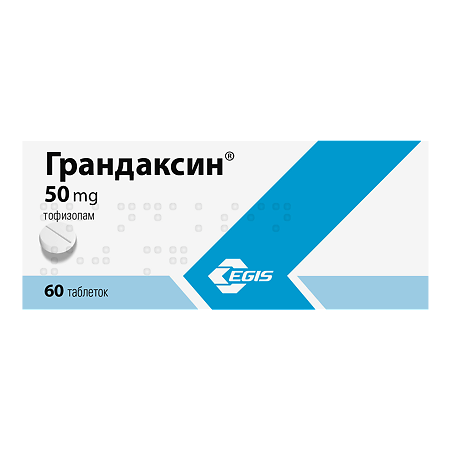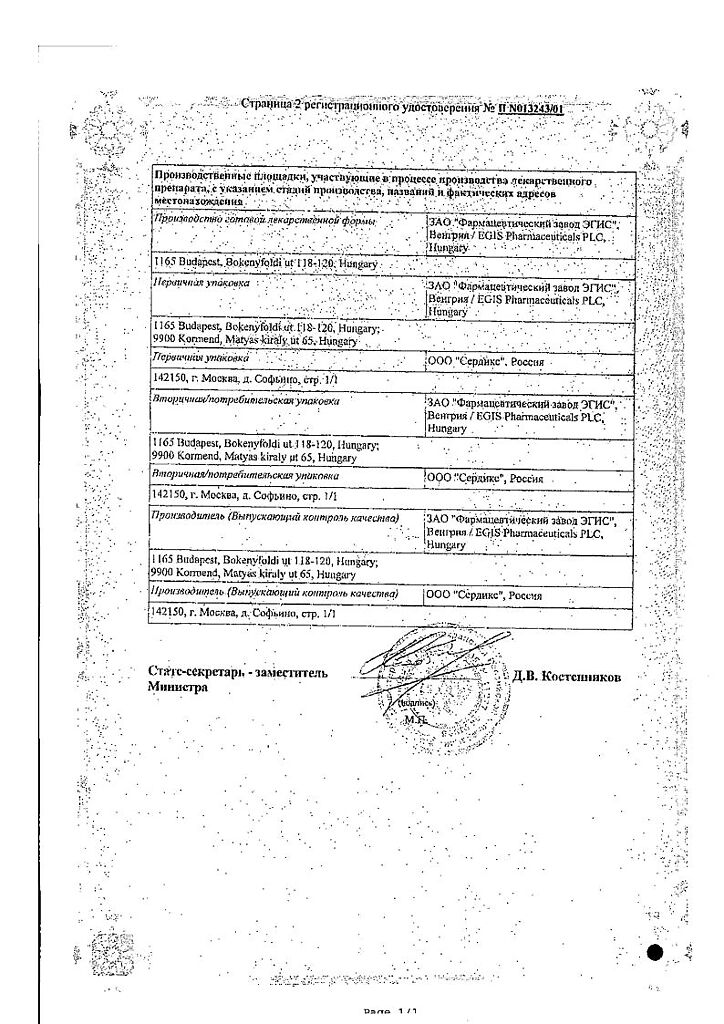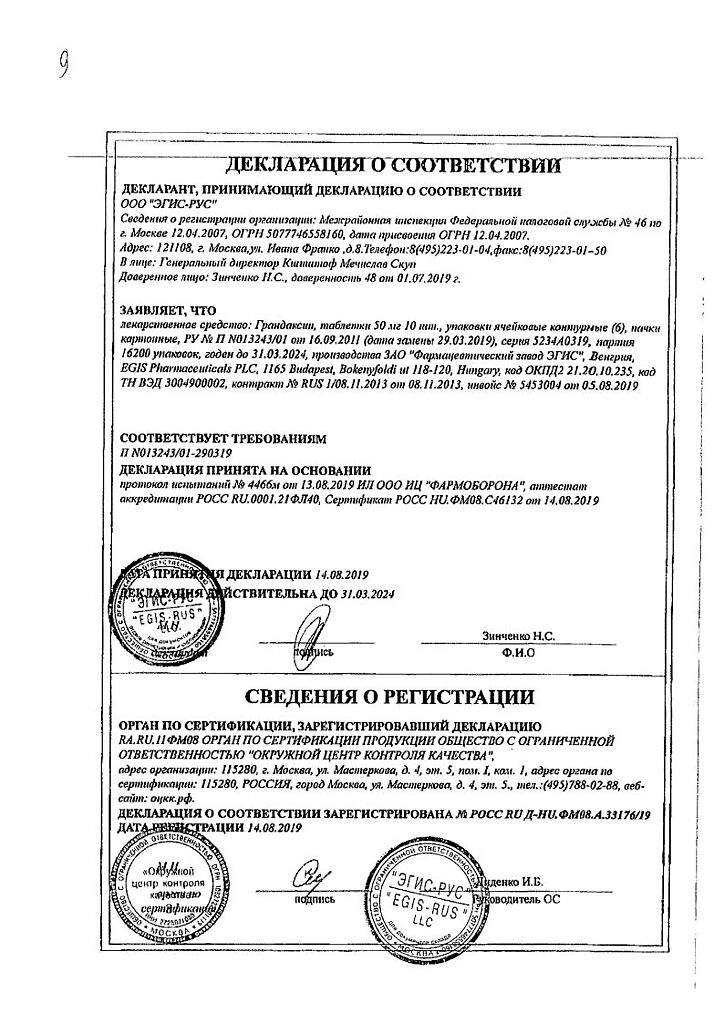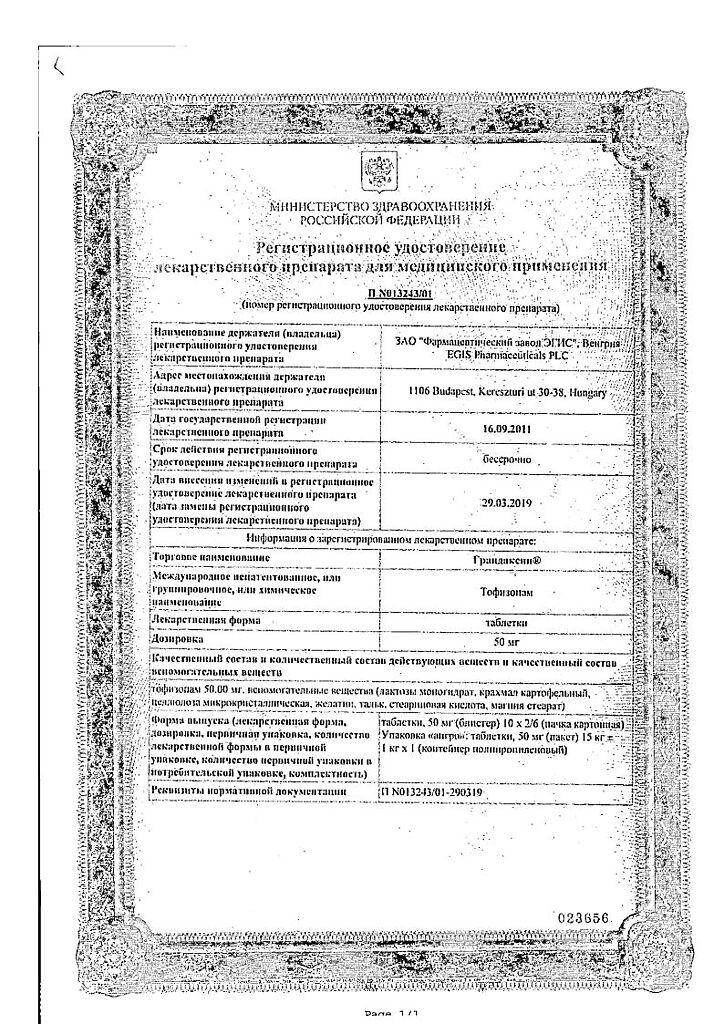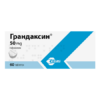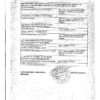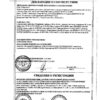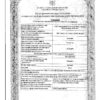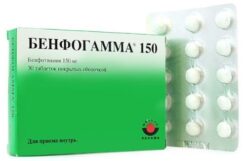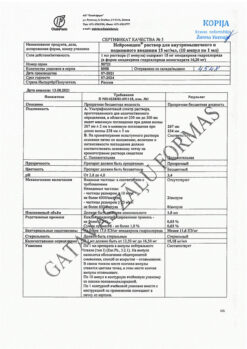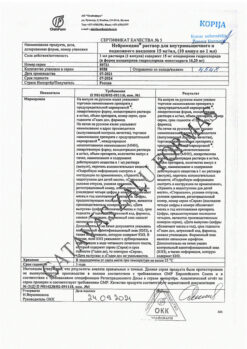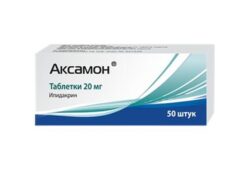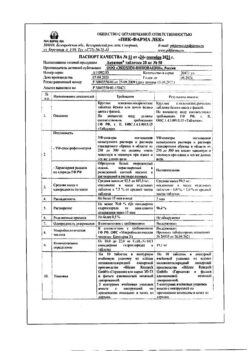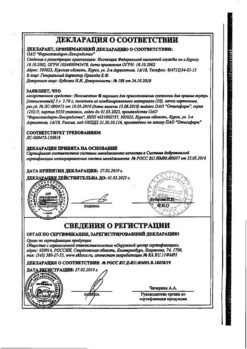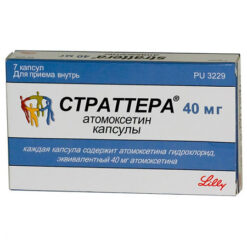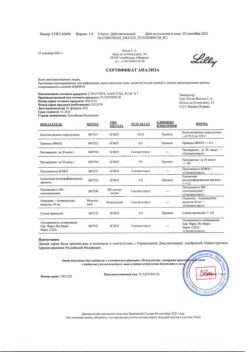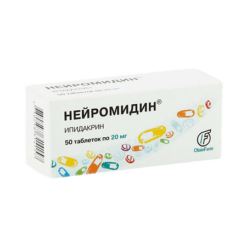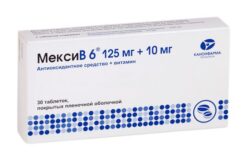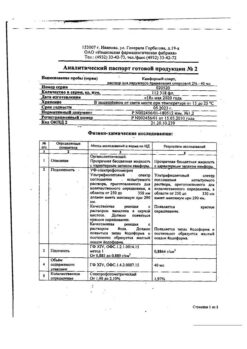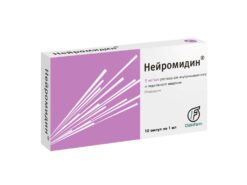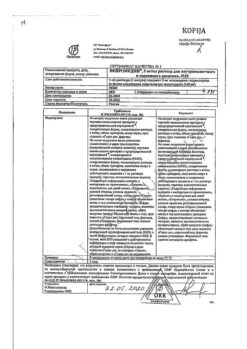No products in the cart.
Grandaxin, tablets 50 mg, 60 pcs.
€29.24 €24.37
Out of stock
(E-mail when Stock is available)
Description
Grandaxin is a drug from the group of benzodiazepine derivatives (atypical benzodiazepine derivative), has an anxiolytic effect, practically not accompanied by sedative, muscle relaxant, anticonvulsant effects. It is a psycho-vegetative regulator, eliminates various forms of vegetative disorders. It has moderate stimulating activity.
Because of its myorelaxant effect the drug can also be used in patients with myopathy and myasthenia gravis. Due to the atypicality of the chemical structure, unlike classical benzodiazepine derivatives, Grandaxin® practically does not cause physical and psychological dependence and withdrawal syndrome in therapeutic doses.
Grandaxin® is a daytime anxiolytic.
Pharmacokinetics
In oral administration, it is quickly and almost completely absorbed from the gastrointestinal tract. Cmax in blood is reached within 2 h, after which plasma concentrations decrease monoexponentially. Tofizopam does not cumulate in the body. Its metabolites have no pharmacological activity. It is excreted mainly with urine (60-80%) in the form of conjugates with glucuronic acid and to a lesser extent (about 30%) with feces. T1/2 is 6-8 h.
Indications
Indications
neuroses and neurosis-like states (conditions accompanied by emotional stress, vegetative disorders, moderate anxiety, apathy, decreased activity, obsessive experiences);
reactive depression with moderately severe psychopathological symptoms;
mental adjustment disorder (post-traumatic stress disorder);
menopausal syndrome (as an independent remedy, as well as in combination with hormonal drugs);
premenstrual syndrome;
cardialgia (as monotherapy or in combination with other drugs);
alcohol withdrawal syndrome;
myasthenia gravis, myopathies, neurogenic muscle atrophy and other pathological conditions with secondary neurotic symptoms, when anxiolytics with a pronounced muscle relaxant effect are contraindicated.
Pharmacological effect
Pharmacological effect
Grandaxin is a drug from the group of benzodiazepine derivatives (an atypical benzodiazepine derivative), has an anxiolytic effect, practically not accompanied by a sedative, muscle relaxant, or anticonvulsant effect. It is a psycho-vegetative regulator, eliminates various forms of autonomic disorders. Has moderate stimulating activity.
Due to the lack of a muscle relaxant effect, the drug can also be used in patients with myopathy and myasthenia. Due to the atypical chemical structure, in contrast to classical benzodiazepine derivatives, Grandaxin® in therapeutic doses practically does not cause the development of physical, mental dependence and withdrawal syndrome.
Grandaxin® is a daytime anxiolytic.
Pharmacokinetics
When taken orally, it is quickly and almost completely absorbed from the gastrointestinal tract. Cmax in the blood is reached within 2 hours, after which the plasma concentration decreases monoexponentially. Tofisopam does not accumulate in the body. Its metabolites do not have pharmacological activity. It is excreted mainly in the urine (60–80%) in the form of conjugates with glucuronic acid and to a lesser extent (about 30%) in feces. T1/2 is 6–8 hours.
Special instructions
Special instructions
It should be borne in mind that patients with mental retardation, elderly patients, and those with impaired renal and/or liver function may experience side effects more often than other patients.
It is not recommended to use tofisopam for chronic psychosis, phobias or obsessive disorders. In these cases, the risk of suicide attempts and aggressive behavior increases. Therefore, tofisopam is not recommended as monotherapy for depression or depression accompanied by anxiety.
Caution is required when treating patients with depersonalization, as well as organic brain damage (for example, atherosclerosis).
In patients with epilepsy, tofisopam may increase the seizure threshold.
Each Grandaxin® tablet contains 92 mg of lactose, which should be taken into account by patients suffering from lactose intolerance (see “Contraindications”).
Effect on the ability to drive vehicles and operate machinery: During the period of use of the drug, driving vehicles and/or working with complex mechanisms that require increased concentration are prohibited.
Active ingredient
Active ingredient
Tofisopam
Composition
Composition
Active ingredient:
tofisopam50 mg;
Excipients:
stearic acid – 1 mg;
magnesium stearate – 1 mg;
gelatin – 3.5 mg;
talc – 2 mg;
potato starch – 20.5 mg;
lactose monohydrate – 92 mg;
MCC – 10 mg
Pregnancy
Pregnancy
Contraindicated in the first trimester of pregnancy.
Breastfeeding should be stopped during treatment.
Contraindications
Contraindications
hypersensitivity to the active or any other component of the drug or any other benzodiazepines;
conditions accompanied by severe psychomotor agitation, aggressiveness or severe depression;
decompensated respiratory failure;
I trimester of pregnancy;
breastfeeding period;
sleep apnea syndrome (history);
simultaneous use with tacrolimus, sirolimus, cyclosporine;
galactose intolerance, congenital lactase deficiency or glucose-galactose malabsorption syndrome (the drug contains lactose monohydrate).
With caution: decompensated chronic respiratory distress, history of acute respiratory failure, angle-closure glaucoma, epilepsy, organic brain damage (for example, atherosclerosis).
Side Effects
Side Effects
From the gastrointestinal tract: loss of appetite, constipation, increased secretion of gases, nausea, dry mouth. In some cases, congestive jaundice is possible.
From the side of the central nervous system: headache, insomnia, increased irritability, psychomotor agitation, confusion may occur, and convulsive seizures may occur in patients with epilepsy.
Allergic reactions: exanthema, scarlet-like exanthema, itching.
From the musculoskeletal system: muscle tension, muscle pain.
From the respiratory system: respiratory depression.
Interaction
Interaction
The simultaneous use of tacrolimus, sirolimus, cyclosporine and tofisopam is contraindicated. Plasma concentrations of drugs that are metabolized by CYP3A4 may increase when taken concomitantly with tofisopam.
The use of tofisopam with drugs that suppress the functions of the central nervous system (analgesics, general anesthesia, antidepressants, H1-antihistamines, sedatives, hypnotics, antipsychotics) enhances their effects (for example, sedation or respiratory depression).
Inducers of liver enzymes (alcohol, nicotine, barbiturates, antiepileptic drugs) can increase the metabolism of tofisopam, which can lead to a decrease in its concentration in the blood plasma and a weakening of the therapeutic effect.
Some antifungal drugs (ketoconazole, itraconazole) can slow down the hepatic metabolism of tofisopam, which leads to an increase in its concentration in the blood plasma.
Some antihypertensive drugs (clonidine, calcium channel antagonists) may enhance the effects of tofisopam. Beta blockers may slow the metabolism of the drug, but this effect is not clinically significant.
Tofisopam may increase plasma digoxin levels.
Benzodiazepines may interfere with the anticoagulant effect of warfarin.
Long-term use of disulfiram may inhibit the metabolism of tofisopam.
Antacids may affect the absorption of tofisopam. Cimetidine and omeprazole inhibit the metabolism of tofisopam.
Oral contraceptives may reduce the rate of metabolism of tofisopam.
Tofisopam weakens the inhibitory effect of alcohol on the central nervous system.
Overdose
Overdose
Symptoms: CNS suppressive effects appear only after taking high doses (50–120 mg/kg). Such doses may cause vomiting, confusion, coma, respiratory depression and/or seizures.
Treatment: in case of severe suppression of central nervous system functions, it is not recommended to induce vomiting. Rinse the stomach. The administration of activated carbon helps reduce the absorption of the drug. Basic physiological parameters should be constantly monitored and appropriate symptomatic therapy should be used.
If respiratory depression occurs, mechanical ventilation can be performed. Administration of CNS stimulants is not recommended. Hypotension is best treated with IV fluids and placing the patient in the Trendelenburg position. If these measures do not restore normal blood pressure, dopamine or norepinephrine can be administered. Dialysis and induced diuresis are ineffective.
Flumazenil can be administered as an antagonist, but its use in tofisopam overdose has not been clinically tested.
Storage conditions
Storage conditions
At 15–25 °C
Shelf life
Shelf life
5 years
Manufacturer
Manufacturer
EGIS, Hungary
Additional information
| Shelf life | 5 years |
|---|---|
| Conditions of storage | At 15-25 °C |
| Manufacturer | EGIS, Hungary |
| Medication form | pills |
| Brand | EGIS |
Related products
Buy Grandaxin, tablets 50 mg, 60 pcs. with delivery to USA, UK, Europe and over 120 other countries.

